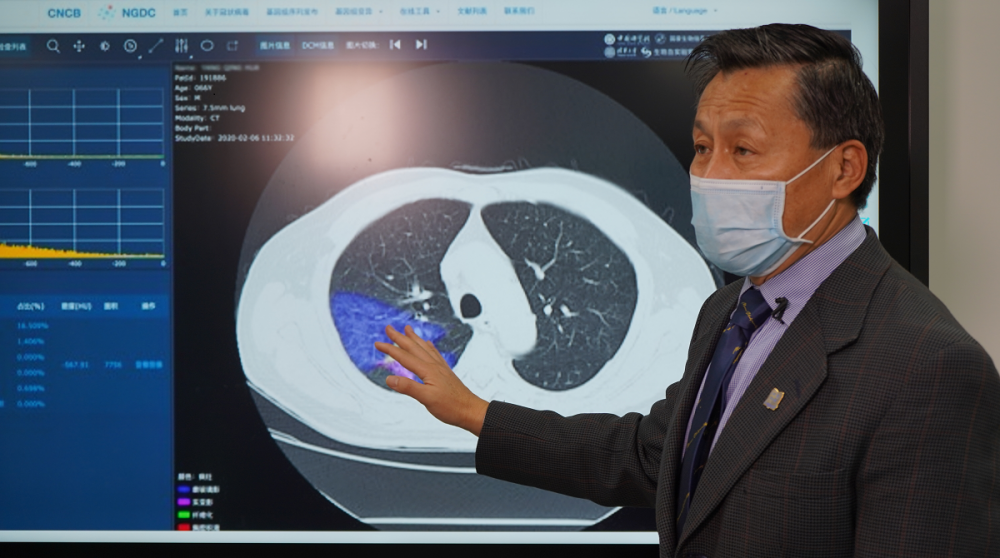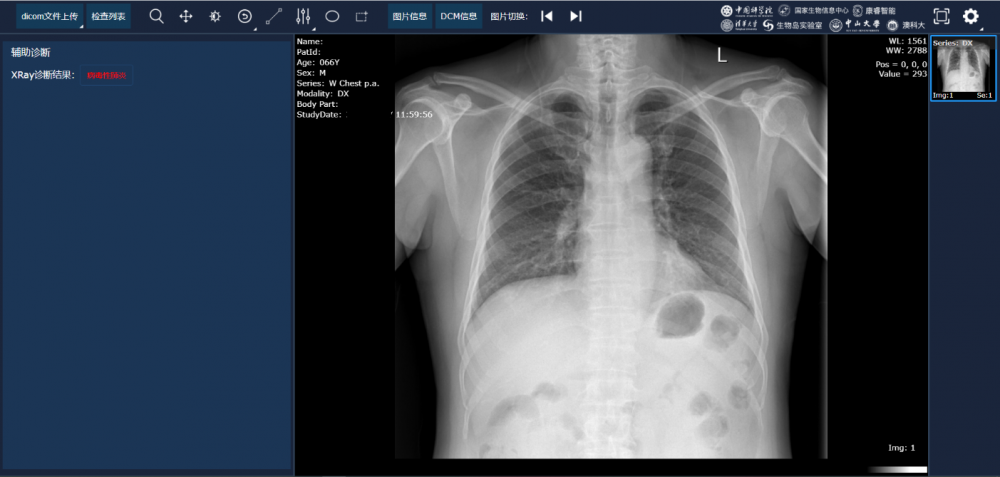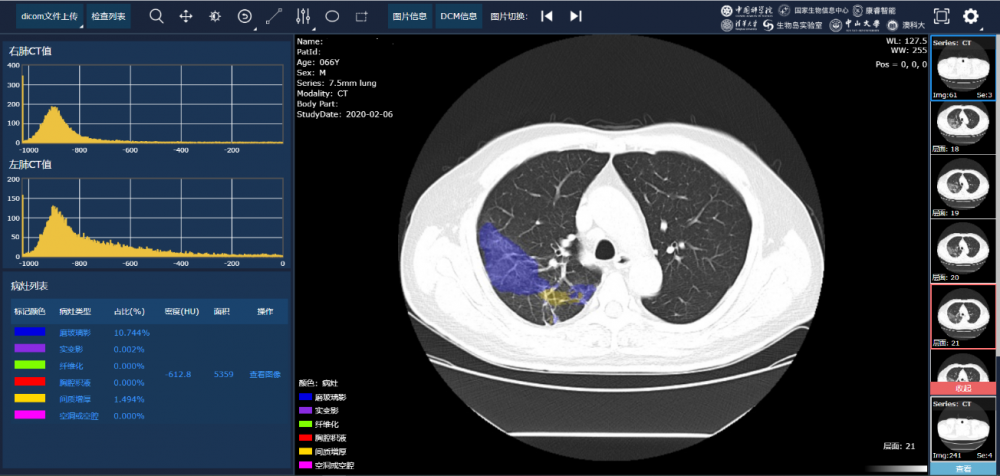The artificial intelligence diagnostic system developed by Professor Zhang Kang can accurately diagnose Novel Coronavirus Pneumonia within 20 seconds
Since the beginning of this year the new coronavirus, called COVID19, has swept across China and the world posing a great threat to people's lives. In the early days of the outbreak, Professor Kang Zhang of the Faculty of Medicine of Macau University of Science and Technology (M.U.S.T.), launched a scientific research project together with the Chinese Academy of Sciences, the National Bioinformatics Center, Tsinghua University, Sun Yat-Sen Memorial Hospital of Sun Yat-Sen University, and the Guangzhou Regenerative Medicine and Health Guangdong Laboratory. The "Artificial Intelligence (AI) System for Screening, Diagnosis and Prediction of new coronavirus pneumonia (NCP)" was developed by Professor Zhang's collaborative team. This AI system can quickly screen a large number of "suspected" pneumonia patients, assist diagnosis and in-hospital clinical assessments, and complete the full cycle management of COVID-19 patients. At present the system is housed on a cloud service by the National Bioinformatics Center, Chinese Academy of Sciences, and available to use by anyone in China, but soon its availability will be international. On March 10, this system was implemented in the Wuhan Jinyintan hospital for frontline deployment, at the same time being deployed and tested in the Sun Yat-Sen University Memorial Hospital, the Third Affiliated Hospital of Sun Yat-Sen University, Remin Hospital of Wuhan University, the Central People’s Hospital in Yichang of Hubei province, the First Affiliated Hospital of Anhui Medical University and the First People's Hospital in Kashgar, Xinjiang and other medical institutions. Next phase will roll out the application nationwide and worldwide. AI screening, diagnosis and intensive prediction of NCP As professor Zhang said, the AI assistant diagnostic system for NCP based on Chest CT and X-ray images was developed from the big data of 500,000 clinical images, using a variety of AI cutting-edge technologies such as deep learning, transfer learning, semantic segmentation, and others. Compared with standard manual reading of images by a radiologist, this AI system has three advantages. The first is the rapid and accurate diagnosis of NCP. It takes about 15 to 20 minutes for an experienced imaging doctor to read and interpret chest CT images of a patient, while the AI system can complete the detection and diagnosis process within 20 seconds. The diagnostic accuracy of this system is more than 90%, which is equivalent to the diagnostic level of an associate professor of radiology in a provincial Grade-A level hospital. Secondly, the system also has the disease severity classification and prognosis prediction function. It can automatically identify, mark and quantitatively analyze at every level of lesions such as ground glass opacities and consolidation on chest CT images. Then it can provide a comprehensive assessment of severity levels, probability and time frame for progression to a critically illness, in combination with other clinical parameters including patient's blood oxygen saturation, acid-base balance, organ damage including liver and kidney, blood coagulation function, all of which contribute to a timely intervention by doctors and reduce mortality. Figure 1. AI screening module based on Chest X-ray images Quantitative Calculation to Guide Medication In addition, the system can assist medical personnel by evaluating drug efficacy and making recommendations, based on comparative analysis of CT images of lesions before and after treatment and intervention. Depending on the quantitative calculation of the lesion, doctors can assess whether the drug is effective thus rendering the system an asset in clinical decision making. Figure 2. Lesion Recognition and Quantitative Analysis of CT Images Professor Zhang also pointed out that the medical imaging technologies system based on AI is still being explored and improved. Expanding the scope of clinical applications and developing it into an effective assistant diagnostic tool for a variety of infectious diseases, promoting the long-term development of AI technology in the medical field, will benefit society.






